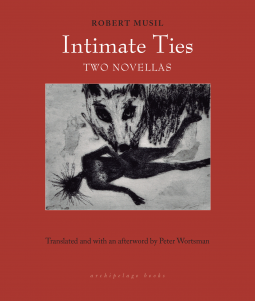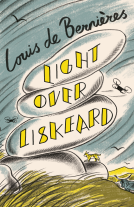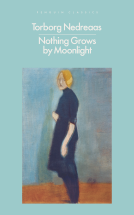
Intimate Ties
Two Novellas
by Robert Musil
This title was previously available on NetGalley and is now archived.
Send NetGalley books directly to your Kindle or Kindle app
1
To read on a Kindle or Kindle app, please add kindle@netgalley.com as an approved email address to receive files in your Amazon account. Click here for step-by-step instructions.
2
Also find your Kindle email address within your Amazon account, and enter it here.
Pub Date 28 May 2019 | Archive Date 20 Jan 2019
Talking about this book? Use #IntimateTies #NetGalley. More hashtag tips!
Description
First published in 1911, Intimate Ties is Robert Musil’s second book, consisting of two novellas, “The Culmination of Love” and “The Temptation of Silent Veronica”. Each revolves around a troubled woman in the throes of her sexual and romantic woes, as their memories of the past return to influence their present desires. Musil tracks the psyche of his protagonists in a blurring of impressions that is reflected in his experimental prose.
Intimate Ties offers the reader an early glimpse of the high modernist style Musil would perfect in his magnum opus The Man Without Qualities.
Advance Praise
Praise for Robert Musil's Posthumous Papers of a Living Author, translated by Peter Wortsman: "Musil's linguistic facility--the merging of aim, manner and result--is virtuosic. He's such a consummate stylist that after him Kafka may seem immature, Mann chatty, Brecht arch, Rilke precious and Walter Benjamin hermetic. And Peter Wortsman's translation is splendid, succeeding in capturing this author's unique combination of quizzical authority and austere hedonism."--The New York Times Book Review "Funny, sad and true--or rather funny because they are both sad and true--such observations are, to use a typical Musil phrase, a form of 'daylight mysticism,' shafts of light in a darkening world."--Chicago Tribune
Praise for Peter Wortsman's translation of Konundrum by Franz Kafka: T"he translator Peter Wortsman's excellent and bracing new selection of Kafka's stories, Konundrum: Selected Prose of Franz Kafka... brings the author's peculiar rhetoric to glorious life."-- Morten Høi Jensen, Los Angeles Review of Books
Available Editions
| EDITION | Other Format |
| ISBN | 9781939810236 |
| PRICE | US$16.00 (USD) |
| PAGES | 208 |
Featured Reviews
 Juliana B, Reviewer
Juliana B, Reviewer
Intimate Ties (2018. Original: Vereinigungen, 1911) comprises two novellas centred on repressed sexuality, taboo, and female desire.
In The Culmination of Love (Die Vollendung der Liebe), thirty-year-old Claudine leaves her husband at home and sets off on a train journey to visit her daughter at a boarding school. She is musing on her past love affairs, when a heavy snowfall forces her to delay her journey and to sleep overnight in a hotel. Overcome by a desire to feel passion once again, Claudine perversely starts to consider infidelity as a twisted way to sanction her love and to consummate her wedding vows: “a state that was like giving herself to everyone and yet belonging only to the one beloved”
In The Temptation of Quiet Veronica (Die Versuchung der stillen Veronika), the eponymous protagonist lives with an aunt. When the novel opens, she is talking with a younger friend, the cerebral, would-be-priest Johannes, about another man, the more sensual Demeter. We have the feeling that the latter somehow threatens their moral conceptions, and that Johannes and Veronica are both attracted to and repelled by him. Then, Johannes leaves, and Veronica believes he is going to commit suicide. She starts to muse about her inability to consummate a relationship with men, as well as her memories of being erotically attracted to animals as a child.
The narrative evolves in stream of consciousness, as a sequence in a dream, and things seem to happen from the inside out: Musil is not as concerned with plot as he is with setting a particular mood, and enveloping us in it, like he does with his characters. Reading this book in translation adds yet a layer of strangeness to the whole experience: like trying to transpose a writing style (which is already challenging in its original German) not only to a different language, but also to a different narrative tradition.
Both Claudine and Veronica’s sexualities are equated to animalistic desire and taboo practices: they are both, at once, the angel and the beast. They are fascinated and tempted by the lust they feel, and, at the same time, they feel disgusted at picturing themselves as subjects of desire: “the only thing that matters is that one should be like the act and not like the person enacting it.”
In a blurring of images and feelings, Musil further complicates his protagonists’ already nuanced relationship to sex: instead of two conflicting realms, body and mind feed each other as one: the bestial impulses are prompted not by the body but by thoughts, and those, in turn, seem to be as devoid of freedom and choice as a necessary bodily function. As much as he was testing the limits of language, the book feels very much as if the author were also probing the limits of what people can do and still consider themselves as human.
 Librarian 498713
Librarian 498713
A superb new translation of a 20th century classic of experimental literary Modernism. These novellas deserve as much attention as the better-known 'Confusions of Young Törless' and 'Man Without Qualities'; and this edition is the best among existing translations and perhaps the best entry point into Musil's fiction for beginners.
 Gabriel T, Reviewer
Gabriel T, Reviewer
Exquisite stories from a master soryteller. In these novellas, Robert Musil showcases his masterful exploration of human psychology. Musil delves into the intricacies of love, desire, and identity with a keen, almost clinical eye, unraveling the complexities of his characters' inner lives. His prose is dense yet precise, often intertwining philosophical musings with narrative progression. The reading can be a bit elusive, and demanding, but it's nevertheless rewarding, for those who prevail. The works in this volume not only highlight Musil's literary prowess but also offer profound insights into the human condition, making them compelling reads for those interested in the intersections of emotion, intellect, and existential inquiry.
Readers who liked this book also liked:
Torborg Nedreaas
General Fiction (Adult), Nonfiction (Adult), Women's Fiction

















